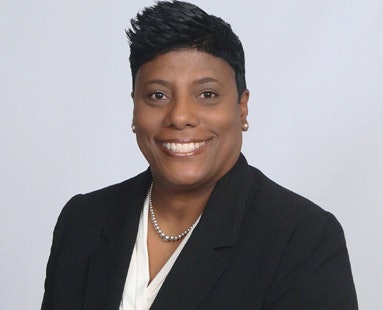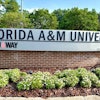 Veronica Nelson, executive director of Advancing Minorities’ Interest in Engineering
Veronica Nelson, executive director of Advancing Minorities’ Interest in EngineeringWASHINGTON — The Bipartisan Historically Black Colleges and Universities Caucus and the Science, Technology, Engineering, Art, and Mathematics Caucus hosted technology companies and HBCU presidents and leaders on Capitol Hill for the first HBCU STEAM Day of Action.
Tuesday’s gathering connected HBCU and tech industry leaders with members of Congress to amplify the conversation around diversifying the workforce and ensuring that HBCUs receive the funding and resources needed to sustain their institutions and provide quality academic experiences and professional training for students.
“The Bipartisan HBCU Caucus is working hard to address the inequities facing HBCUs. We’ve made progress, but Congress cannot do it alone,” said Rep. Alma S. Adams, co-chair of the caucus. “Leveling the playing field for our schools and our students requires a collective approach to ensure HBCUs have access to the same federal resources and private-sector opportunities as their peer institutions.”
The STEAM Day of Action provided an opportunity for HBCU and tech leaders to meet with the Senate Health, Education, Labor, and Pensions Committee, House Education and Workforce Committee, House Agriculture Committee and House Energy and Commerce Committee on issues related to STEM initiatives, resources for land-grant universities, reauthorization of the Higher Education Act and more.
Collaborations with the STEAM Caucus underscored Rep. Suzanne Bonamici’s point that integrating the arts into STEM “engages more students, especially historically underrepresented populations such as women and minority students.”
“Activating both sides of the brain prepares students to be innovative and creative, both critical skills for success in 21st-century jobs,” said Bonamici, co-chair and co-founder of the STEAM Caucus, which also is bipartisan.
A midday panel and luncheon sponsored by Intel, shifted the conversation to address ways HBCUs and tech leaders can create collaborative partnerships to prepare students for the workforce. An emphasis on more funding, public-private partnerships and including HBCUs in conversations around solutions for creating pipelines to industries fueled the discussion.
Panelist Barbara Whye, vice president of human resources and chief diversity and inclusion officer for Intel, said companies often believe that diversity initiatives negatively impact revenues.
“Quite frankly, the opposite of that has been true for Intel,” she said. Whye added that the company invests in HBCU students through internships and also invests in faculty, working with them on curriculum design and technology use.
“We know all of these things are critically important not only for Intel, but for our nation because when we aren’t tapping into the talent of the HBCUs, we’re leaving opportunity on the table,” she said.
Veronica Nelson, executive director at Advancing Minorities’ Interest in Engineering, noted that company retention efforts and summer bridge programs are critical for making sure that HBCU students have access to work in STEM sectors. She also said that it is essential for HBCU leaders to seek out partnerships with the right companies and organizations that align with their needs and strengths.
Dr. Larry Robinson, president of Florida A&M University, said companies and organizations should seek a “collaborative approach” to working with HBCUs as opposed to a top-down approach that assumes that outside executives know what HBCUs need.
“We have to develop the type of cultural changes such that these programs survive the next CEO,” he added.
The panelists agreed that no single company or institution can resolve the issue, and that sustainable change takes intentional effort at all levels.
Robinson added that industries must look for talent “under every rock” in order for America to be competitive globally, and he called HBCUs a “boulder.”
At the breakfast meet-and-greet earlier, Adams praised Lyft for accepting the HBCU Partnership Challenge, making the ride-sharing company one of three companies to date to answer a call to invest directly in HBCUs. Intel and Blue Cross Blue Shield of North Carolina were the first two companies to accept the challenge.
Fisk University president Dr. Kevin D. Rome, Sr. thanked Lyft for “stepping up and lifting us.”
Rome added that while many companies recruit HBCU students, they often do not invest in the HBCUs producing the talent.
He issued a stirring call-to-action for the group of HBCU leaders present.
“We need to go to the organizations that hire our students and demand that they invest in our institutions if they want to keep receiving our talent,” he said. “It’s time to recognize our contributions, and even more so, it’s time that we work with these other companies and organizations and demand that they invest in our efforts.”
Tiffany Pennamon can be reached at [email protected]. You can follow her on Twitter @tiffanypennamon.



















